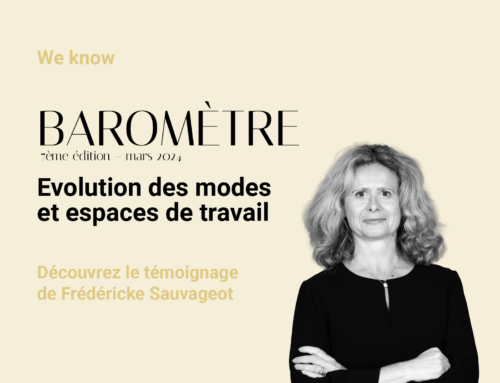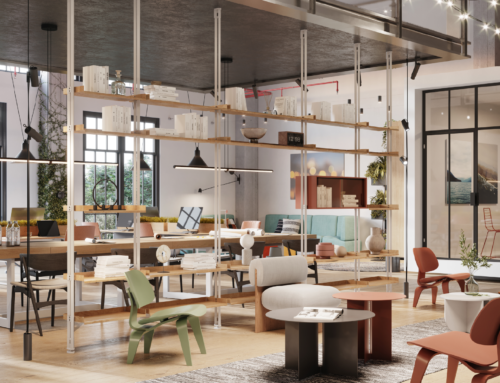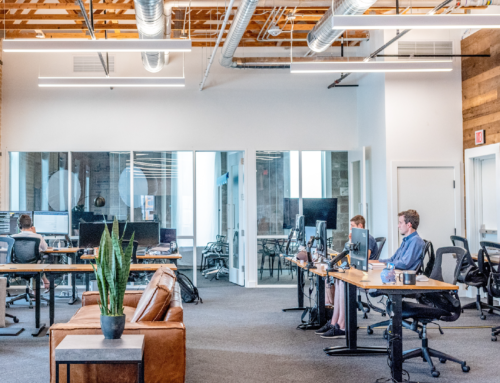What's the ideal workspace for young people?
A few days ago, we got together for a round-table discussion on the ideal workspace for young people (under 35).
Let's take a look at some key lessons from Yannick Mangin of Qonto, Oana Migeon of Contentsquare and Doriane Bettinger of Parella:
1st lesson from the barometer : Young people like to come to the office...
...Particularly to find their colleagues and the work atmosphere.
This observation is shared by Yannick Mangin of Qonto, whose employees in France have an average age of 31. The engagement survey, which he monitors twice a year, reveals spontaneous comments along these lines: "happy to be able to work together".
Doriane Bettinger from Parella explains that young people also have less access to telecommuting than employees as a whole (65% vs. 70% according to the Parella x CSA barometer). This is due in particular to the apprenticeship contracts included in the panel. It is also important to maintain some face-to-face contact with this population to facilitate learning and coaching, and avoid burn-out or isolation in the case of people living alone.
Lesson 2: Young people are adept at new ways of working
Today, 37% of young people work in a flex office, which is already 9 points higher than the national average for employees. And they're satisfied! 80% see it as a good thing, mainly for the freedom it gives them and the fact that it strengthens the team.
At both Qonto and Contentsquare, the flex office is well established and appreciated.
Lesson 3: the role and perception of space quality is stronger for younger employees.
In particular, they have high expectations in terms of comfort and environmental policy. This is a fundamental part of Qonto's corporate culture. For example, the visit to the premises during the onboarding of new employees is an opportunity to explain the company's environmental policy to new recruits. This is illustrated, for example, by the sourcing of furniture.
At Contentsquare, it is essential that the work spaces embody the culture of the company, its DNA. This is a prerequisite when designing layouts. Oana insists on the fact that the employees expect today to be in the office "better than at home". So we're past the "just like home" stage!
Keep this in mind when you consider that the quality of workspaces is considered by young people when choosing their future employer (73% make it an important or decisive criterion)!
Lesson 4: Focus on hospitality services
At the crossroads between quality of life expectations and the enhancement of corporate culture, hospitality takes on its full meaning, and our speakers put on an impressive show:
At Qonto, 4 people are dedicated to organizing events, with a substantial budget. The idea is to "transform the office into a Center Park", with Lunch & Learn formulas, a massage service (reimbursed by the mutual insurance company), afterwork sessions...
In addition, Oana Migeon of Contentsquare and her workplace experience department are expanding the range of services on offer to maintain the social link and integrate the employee in all his or her dimensions: family, pets, hobbies...
In addition to Family Days, Masterclasses are regularly organized to showcase a collaborator's talent. Last month, for example, it was a writing class.
But let's not forget that the most important factor is location and accessibility! So Qonto, despite its central location, suffers from being on line 12 of the metro, which is not very popular...
And the Future of Work?
Our people focus on the present, to ensure that social contact and the pleasure of coming to the office are maintained, in line with the company's culture. To achieve this, it's essential to listen to employees' expectations.
To read the full study, click here.






